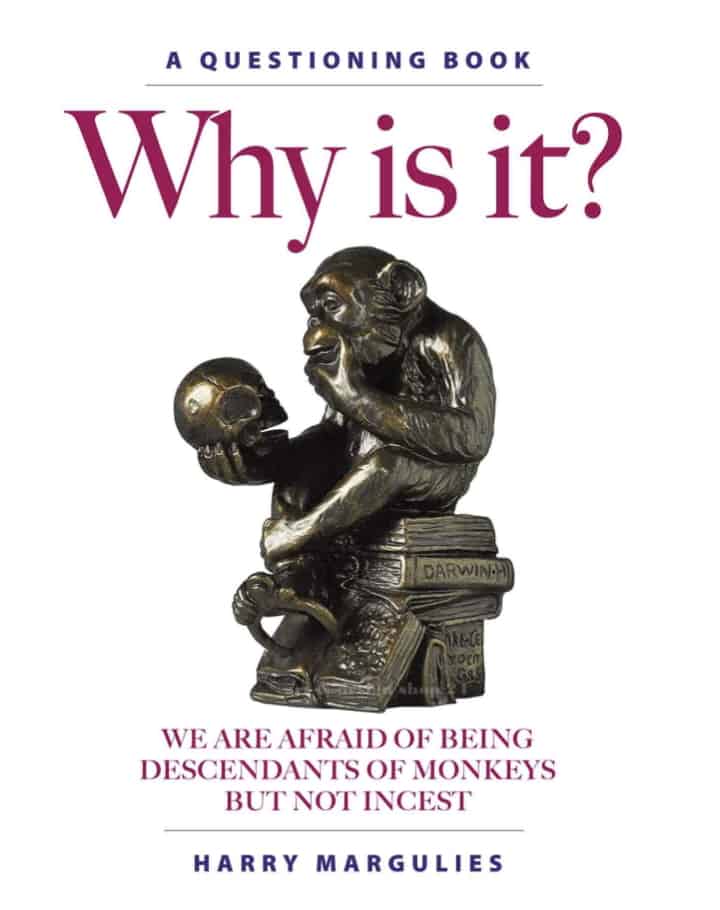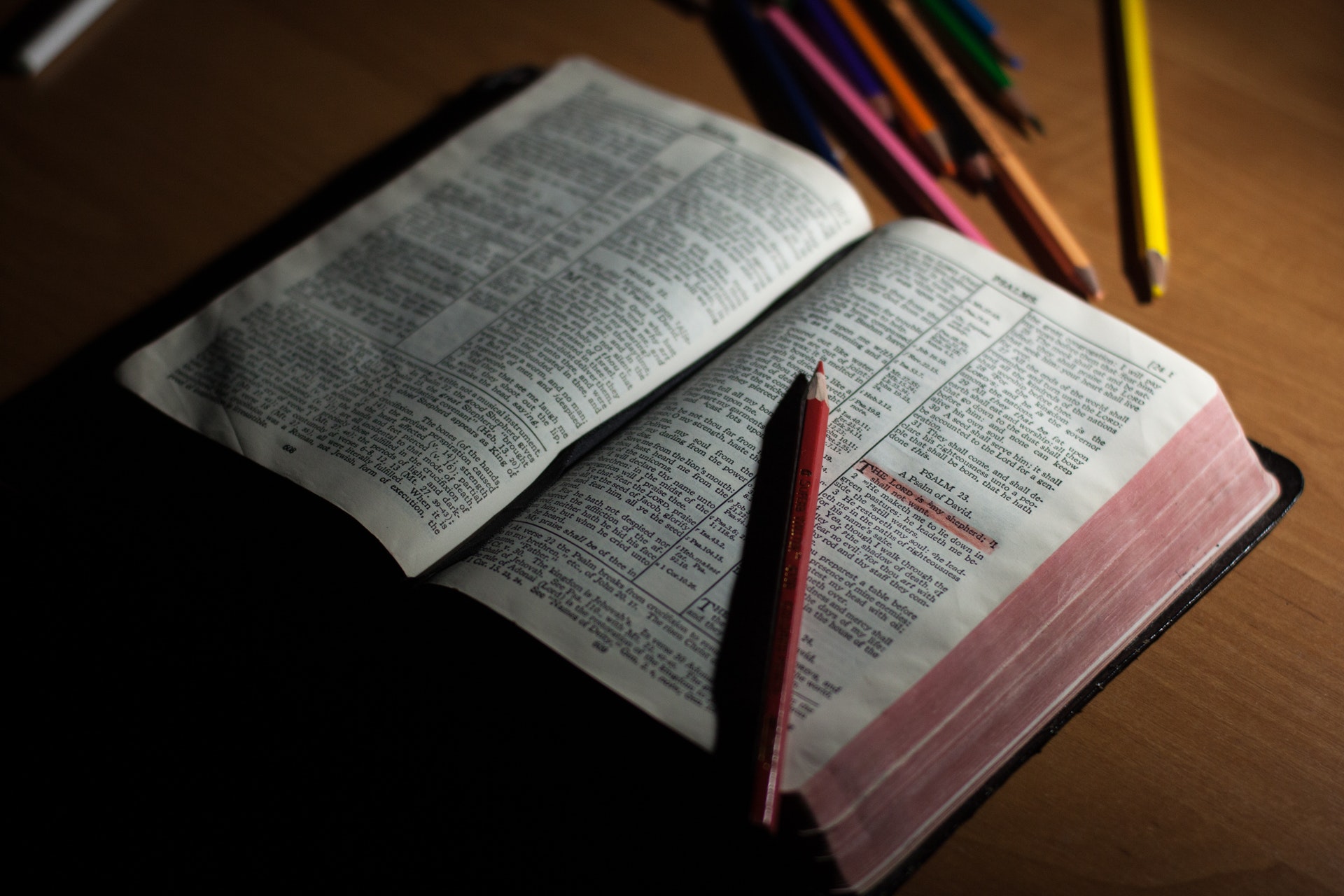When those who do not subscribe to any faith point to religious issues, they are often accused of being atheistic propagandists. This, of course, ignores the troubling fact that religious parents and institutions have full freedom to indoctrinate children.
That is not to say that parental freedoms and responsibility should be curtailed but it is important to ask the question of whether such ‘education’ is, in fact, providing our children with the instruction they need, and deserve.
Among the Abrahamic religions (Christianity, Islam and Judaism) there are many prophets, and so many ways to worship God and fight for one’s own true belief, that one thing is clear: they cannot all be right.
Is it not therefore logical to determine, rather, that they are all wrong?
When God created the world, he spoke out loud in his divine solitude and declared, “Let there be light!” But was the omniscient, omnipotent creator that clear in His instructions? He gave His creation, humanity, holy texts that were so difficult to understand (and so mystical that they can be interpreted in wildly different ways) that they have often led to wars, spilling the blood of His children, and of our children.
As history clearly shows, religious leaders always want disproportionately more power over and above what they currently possess. They can’t, however, achieve this without their followers, upon which rests their pyramid of power. When we provide religious instruction to children, are we not then really enlisting them as unwitting stooges in this scheme?
Our young are taught that God blames humanity, through all subsequent generations, for the sins of Adam and Eve in Paradise. Church organisations have created the solution, which is to sprinkle some water on a baby’s head. This ensures the dependence on religious institutions from the very beginning of a child’s life but has anybody asked if God has signed up to the baptism?
Now to Islam. The Quran is said to be a ‘perfect book’ and, as such, it should be impossible to misunderstand it. But, in truth, within the Quran one finds many hateful texts. One, for instance, where we are informed that nonbelievers shall be grilled and their skin renewed in order to re-experience the pain. We also find that Shia Muslims are fighting Sunni Muslims and that there are violent and peaceful interpretations of Islam. How can this be with the Quran being God’s direct and final word?

It is, of course, easy to criticise somebody else’s belief. A Christian cannot understand that Muhammad flew on a winged animal to visit heaven and a Muslim cannot understand that Jesus was the son of God who died on the cross.
Given these inconsistencies, as well as the violence inspired by religious texts, we must ask ourselves this question: are holy texts moral? Are they a good subject for Sunday school? Sunday school is, after all, the place where morality is supposedly taught.
To determine this, only a few examples of biblical ‘morality’ are required:
- Cain kills his brother Abel and gets protection from God.
- The righteous Lot is visited by male angels and the men of his town gather to rape these angels sent by God. Lot does some quick thinking and offers his virgin daughters for the rape. Where is the morality in this?
- Lot’s wife, disobeying God’s instructions, looks back to see the divine work in action and is turned into a pillar of salt. And then, with the aid of alcohol, Lot’s daughters take turns to seduce their father to ensure that humanity survives. Is this moral?
- In the Old Testament, in Psalm 137 (The Rivers of Babylon), one finds tales about babies being smashed against rocks. And I quote, “Fortunate is the man who will seize and dash your little ones against the rock”.
- In the New Testament, we understand that Jesus is definitely in favour of slavery. He surely must’ve known better.
What does this teach our children? That they must live with the guilt of Adam and Eve, and that God—in all of His power—has effectively done nothing in light of all of the horrors we suffer as humans.
It is clear to us that the babies are born without any faith and get their religion from their parents and not from God. Children, therefore, learn only that they must abide by inconsistent information and deny fact to prove their faith.
What if a new religion was created with boy wizard Harry Potter as God? There would immediately be theologians who would throw themselves over the now-sacred texts by the newly appointed prophet JK Rowling and who would formulate many different interpretations. Harry Potter sins would quickly be created and various churches would find ways for the sinner to be exonerated. All one would need is faith and belief in the theology of one’s particular Harry Potter church. That magic, or the evil machinations of He-Who-Must-Not-Be-Named, did not actually exist would, politely, be put to one side.
One excuse put forward by religious apologists is that one ought to take an allegorical view of Holy texts. That, however, won’t make the texts more suitable reading for children. Indeed, it only strengthens my argument that God surely could have inspired clear texts, giving us all the same, unambiguous understanding. He has the ability.
If God could have predicted, which He, with all his absolute attributes absolutely could, that we would so terribly interpret his wishes, why would He allow us to act upon this misunderstanding?

Furthermore, how could He watch as His ‘children’ committed violence against one another in His name? Let us, for an instant, forget about the squabbles of men and ask the more abstract question: why does God allow evil? The explanation is that we do not understand God’s mysterious ways. Regardless, we are responsible for our actions despite any misdirection caused by our Lord and Saviour Himself.
When the Pope tells us to pray to God to stop the Covid-19 virus, it feels a tad late. It means God, with his omnipotence and omniscience, is asked to change his mind about what He knew from the beginning was going to occur. The same feeling applies when the Pope asks Christians to fast so that God will make the situation in Afghanistan better. Where was God before?
By the same token, does God not get the blame for 230,000 people dying in a tsunami, or in other ‘natural’ disasters? Apparently not. Instead, everyone prays and thanks the Lord for the few who manage to survive. The reasonable conclusion is that God is not omnipotent but impotent (or, perhaps more logically, non-existent).
Let me conclude with a few lines from the Lord’s Prayer in the way that Lutherans and the Church of England pray:
Give us this day our daily bread …
And lead us not into temptation …
For thine is the kingdom, the power and the glory …
God, we are told, has the power to move heaven and earth. Yet we ask Him not to lead us into temptation. Is that surely not Satan’s job? Now, some theologian blame an error in translation which means that we ignore the telling fact that for the generations during which the old version has been recited—without reflection. Has no one thought of this before?
God has, in the Book of Job, the ability to put limits on what Satan is allowed to do. Does God retain Satan for power or morality, or to have evil tempt us?
God could easily have gotten rid of that Devil to make the world a better place. Likewise, we are drawn to the inevitable conclusion that we could readily do the same, for the sake of future generations, with the notion of God.
Why Is It? We are Afraid of Being Descendants of Monkeys but Not Incest by Harry Margulies is published through Why Is It Publishing AB and is out now in hardcover, paperback, and eBook formats, priced £19.95, £12.95, and £9.99 respectively. It is available online from Amazon and all good book stores. For more information, visit www.whyisitpublishing.com. Follow author Harry Margulies via Twitter or Instagram at @askwhyisit.
Q&A INTERVIEW WITH HARRY MARGULIES
A second generation Holocaust survivor, Harry Margulies abandoned his Jewish upbringing as a teenager, replacing religious instruction and faith-based reasoning with logical analysis. In this exclusive interview, we speak to the atheist author about his new book, Why Is It? We are Afraid of Being Descendants of Monkeys but Not Incest—which aims to expose the incomprehensible and illogical nature of organised religions—and why, in his view, religion is of huge detriment to society and must be reconsidered through the prism of truth.

Q. There has been a great deal of work conducted within organised religions to show their teachings are fundamentally compatible with scientific knowledge. What is your assessment?
A. God failed science class. He created a flat Earth, covered by a dome, with the Moon and Sun coming out of pockets at the edge of the Earth, and with stars even falling onto the planet. God has been proven wrong by science.
Organised religion is now using apologetics as a way to explain away the scientific impossibilities in holy texts, and they are failing miserably. Without any evidence in the biblical text, one day is claimed to be an eon of time to explain away the difference between creationism and evolution. The closest we can get is in the New Testament, when it is written that a thousand years is like a single day. A thousand years for a day is still not enough.
Q. For all its faults, the Catholic Church has surely been a leading voice in the call for greater economic equality and anti-poverty measures?
A. Pope Francis has come out in his Encyclical on Climate Change & Inequality about the environment, and about us stepping away from the pure-profit motive. Worldwide, the Catholic Church has enormous and unmeasurable wealth. Do they not invest that for profit?
The Vatican bank must be run by profit or it would not be able to repay its depositors. Furthermore, the Vatican bank has been involved in several financial scandals in the pursuit of profit.
If the Catholic church would give away its vast wealth to the most needy then that would be a sign of good faith. If they would then pray to Jesus to give them what they deserved, that would be a sign of true faith.
There is a big difference between being a leading voice and actually causing change. The pope can scream ‘equality’ until his lungs blow out but the fact of the matter is, he represents an enormously wealthy and powerful institution which really does not do that much in the pursuit of economic fairness.
Q. Can you explain the meaning of your book’s title?
A. Believers have great difficulty understanding that we may have the same ancestors as monkeys (while in fact we originate from fish). They don’t mind that God created one family so we had to come from incest! God knew better and could have created several families— he didn’t.
Some find the title controversial. I think it’s stating facts.
Q. You were raised in the Jewish faith though later came to walk away from this. How do you think this move to atheism has benefitted you?
A. It has helped me to see the world clearly and to understand that morality is within you. It has also benefited the generations after me. To the extent that I’ve had influence, my family consists of independent, moral people, without the need for an imaginary supervisor.
Q. Those who champion religion often claim that direct knowledge of divinity is beyond the grasp of mankind. As such, how do you think you can challenge believers to reconsider their faith?
A. Simply put, we get our religion from our parents and the geography where are raised. Otherwise, we must believe that God created texts that are so impossible to understand, with so many different interpretations, that we need theology and apologists to explain them to us all.
If the pope were born in Saudi Arabia to Muslim parents, he would look down on the Catholic Church.
Q. If somebody is questioning their faith while living in a largely religious community, what should they do?
A. Stay true to yourself. Seek help outside of your community. Find someone who has previously de-converted to speak to. You may be shunned but once you are over that, the relief of not fearing an imaginary supervisor makes it all worthwhile.
Find comfort and solace in the fact that you are leaving a community which is so willing to shun you for having different beliefs among all other beliefs which their advocates also think are right.
Q. Why do you think children, especially, should be shielded from religions?
A. Children and society at large would be better off if they used their minds to the best of their abilities instead of spending time praying.
For the same reason, I support age warnings on books and movies. We are exposing children to concepts of violence, misogyny, homophobia, and even genocide which the ‘good Lord’ prescribes. It is not age-appropriate. Even if were to say that one should take the biblical texts as allegory, they would still not be appropriate for Sunday school.
Q. Do you think that agnosticism is an acceptable middle ground between faith and atheism?
A. An agnostic maintains neither belief nor unbelief of a God. The atheist says, “There is no evidence of any god”. An atheist like myself is prepared to believe in God if He only performed a miracle, viable and witnessed by many, and undeniably true in a way that cannot be scientifically explained.
Q. In brief, why do you think organised religion to be a harmful force on society?
A. Let’s start with morality police in certain Islamic countries. Let’s point to terrorists who believe that they will be rewarded with endless sex with virgins in heaven should they blow themselves up in the defence of Islam. Let’s look at misogyny and homophobia. Culling the wealth of worldwide religious institutions could help pay back the debt load of countries around the world and make life easier for the most needy.
Q. How, in brief, would you see society benefitting if organised religion was removed from the equation?
A. Pope Francis could stop saying that the dead are praying for us. He could also stop the ridiculous practice of exorcism which prevents people from seeking proper help. God seems to be concerned if somebody masturbates but looks away when Catholic priests engage in child rape. In Islam, the younger men who are sent out to die in defence of their faith would be able to question why their leaders are able to enjoy wealth and sex in this life.
Believing you need to live this life in a certain way to benefit only in the next life is neither good for oneself or society around you.

